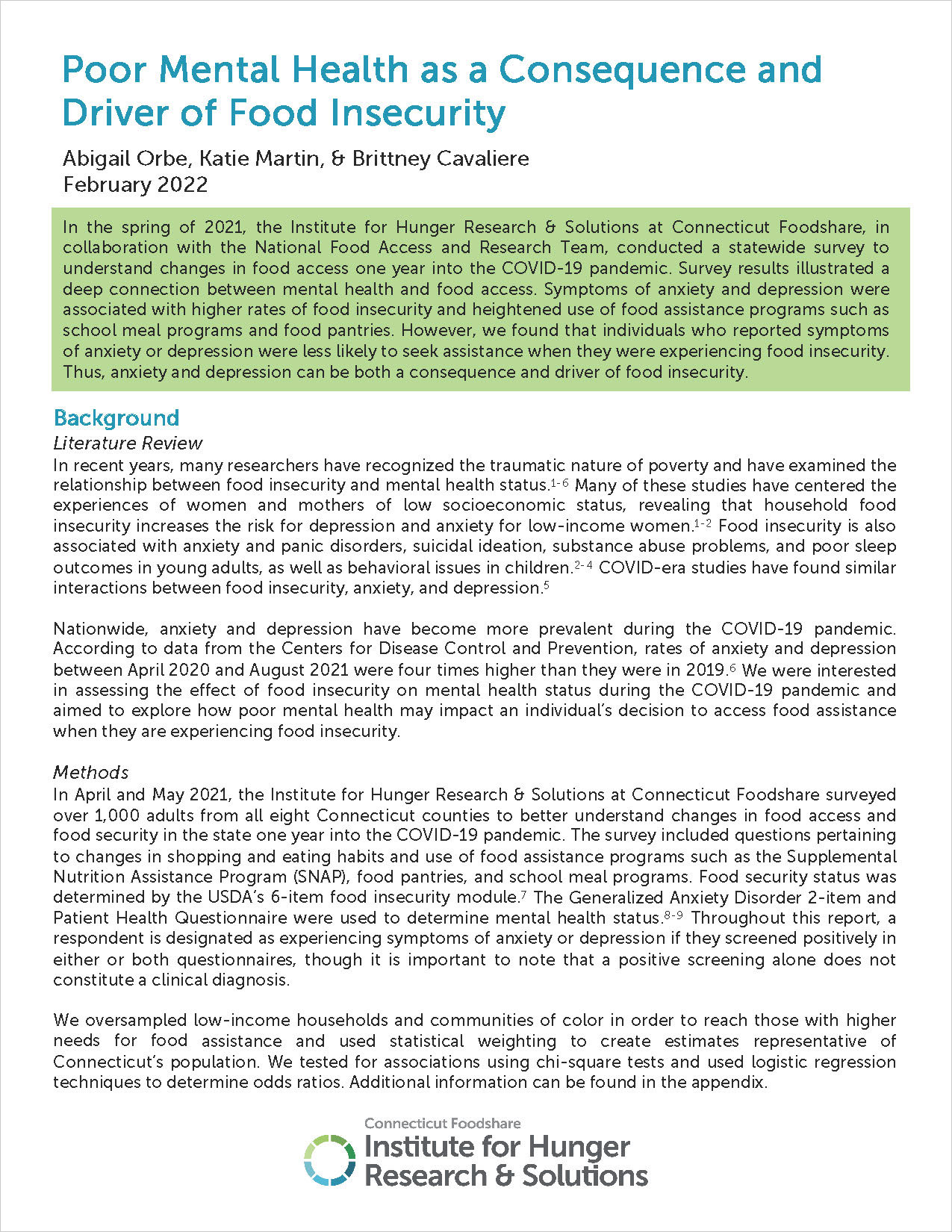Poor Mental Health as a Consequence and Driver of Food Insecurity
In the spring of 2021, the Institute for Hunger Research & Solutions at Connecticut Foodshare, in collaboration with the National Food Access and Research Team, conducted a statewide survey to understand changes in food access one year into the COVID-19 pandemic. Survey results illustrated a deep connection between mental health and food access. Symptoms of anxiety and depression were associated with higher rates of food insecurity and heightened use of food assistance programs such as school meal programs and food pantries. However, we found that individuals who reported symptoms of anxiety or depression were less likely to seek assistance when they were experiencing food insecurity. Thus, anxiety and depression can be both a consequence and driver of food insecurity.

